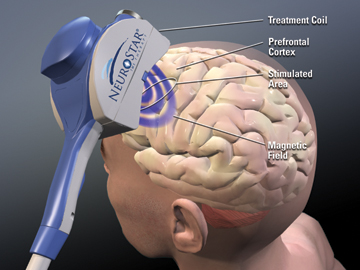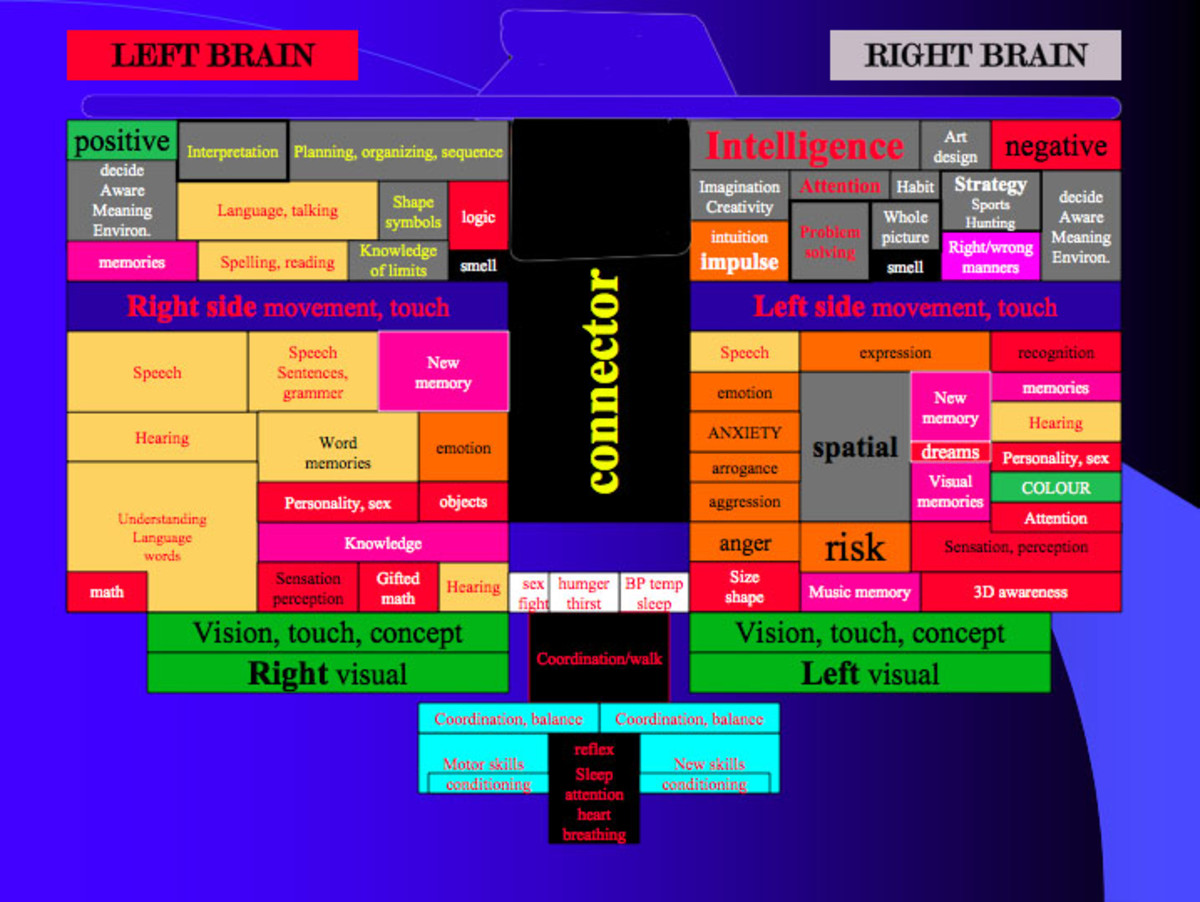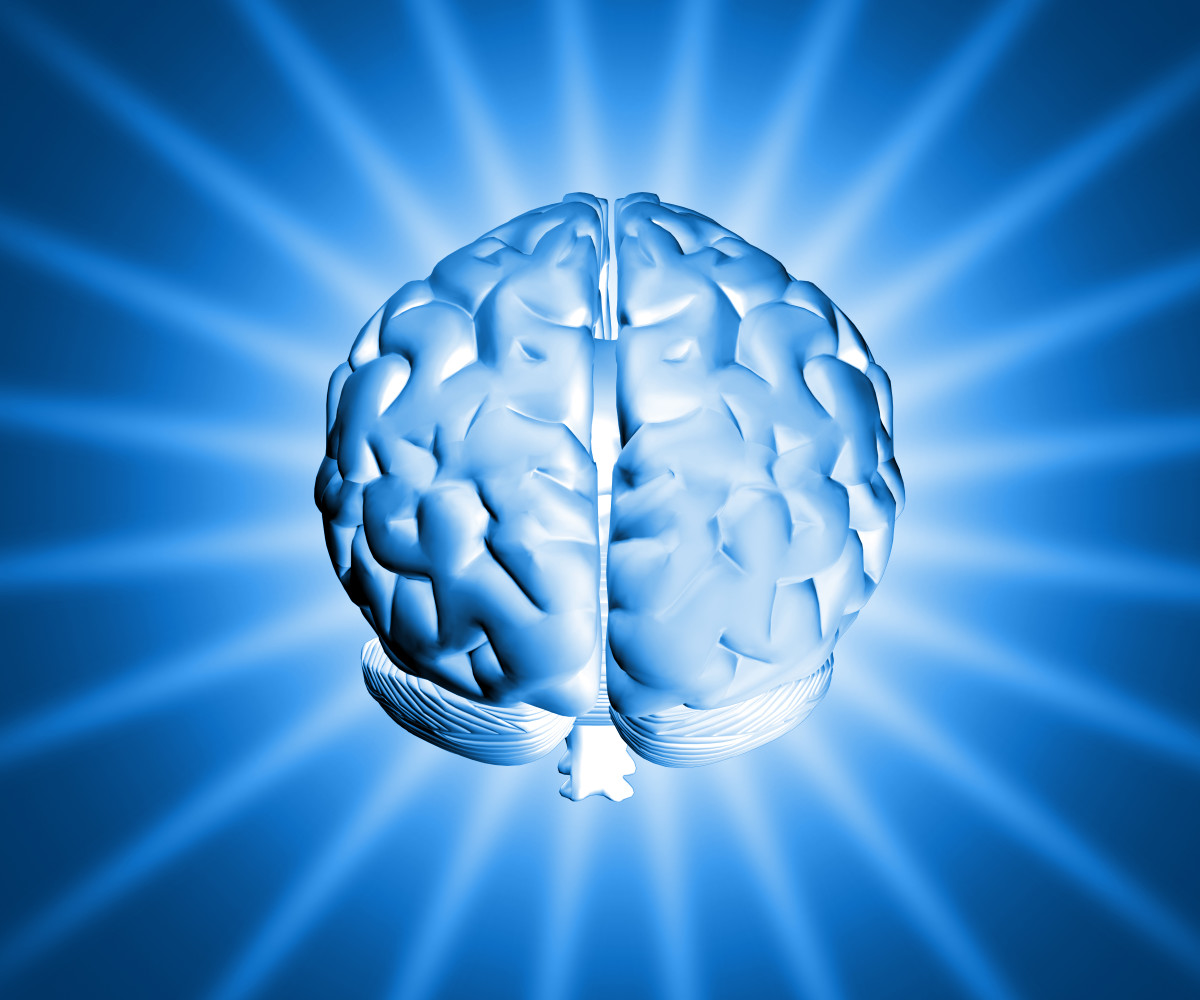Transcranial Magnetic Stimulation Therapy

What is Transcranial Magnetic Stimulation?
TMS is a non-invasive brain stimulation technique that uses magnetic fields to induce weak electric currents concentrated on parts of the brain where it is expected to cause depolarization or hyperpolarization of neurons which may improve conditions affected by neuron dysfunction.
In simplest terms, it's like using an MRI to induce a weak current in the brain without touching the head; no electricity, not electrodes. This is expected to produce a much better safety profile than shock treatments and many drug treatments for indicated conditions.
What conditions is TMS used for?
Transcranial Magnetic Stimulation is currently being studied for the following conditions:
1. Stroke:
Transcranial Magnetic Stimulation in Children With Stroke
2. Multiple Sclerosis
Repetitive Deep Transcranial Magnetic Stimulation in Multiple Sclerosis
3. Depression
Repetitive Transcranial Magnetic Stimulation(rTMS) in the Treatment of Depression
Repetitive Transcranial Magnetic Stimulation (rTMS) for Treatment Resistant Depressive Disorder
4. Addiction: Nicotine, Cocaine, Gambling
Pilot Study of Transcranial Magnetic Stimulation (TMS) in Nicotine Addiction
5. Fibromyalgia
Repetitive Transcranial Magnetic Stimulation in Fibromyalgia
6. Tinnitus (ear ringing)
Transcranial Magnetic Stimulation for Tinnitus
7. Aphasia (speech impairment)
Transcranial Magnetic Stimulation to Improve Speech in Aphasia
8. Psychosis, Schizophrenia, hallucinations, delusions
Theta Burst Transcranial Magnetic Stimulation as Treatment for Auditory Verbal Hallucinations
9. Bipolar Depression
Using Repetitive Transcranial Magnetic Stimulation (rTMS) for the Treatment of Bipolar Depression
10. Alzheimers
11. Migraine
Double-blind Randomized Clinical Trial of Transcranial Magnetic Stimulation in Chronic Migraine
12. Autism
Transcranial Magnetic Stimulation (rTMS) and Autism.
13. ADHD
As you can see, there are lots of conditions in which TMS is being investigated as a treatment. They include Major Depression, Bipolar Disorder, Autism, ADHD, Migraine, Multiple Sclerosis, and stroke. If you would like to participate in a study, click one of the links above for more information. If you have tried or will try TMS, let us know!
The greatest risk associated with TMS is having a TMS induced seizure. The risk is currently considered to be extremely low and a TMS seizure is not expected to recur after an initial seizure. The magnetic stimulation used is about the strength of an MRI so the risks may be comparable to having a diagnostic MRI.
If you consider trying an experimental treatment, the rule of thumb that we use is do not try a treatment that has more side effects than your current treatment. TMS is non-invasive and expected to have relatively benign side effects. Side effects of drugs such as opiates and steroids for example tend to have greater and more severe side effects than a treatment such as TMS.
A second rule of thumb is, 'if it ain't broke, don't try to fix it', in other words, if you are relatively healthy, do not try experimental treatments that are expected to have side effects that are worse than your condition. These rule of thumbs may be applied to treatments your doctors may try also. Your doctor should discuss treatments with you rather than prescribing treatments without your knowledge and scribbling nonlegibly on a prescription pad such that you don't even know what it is until it gets filled at a pharmacy.
The fact that TMS is being tried for benign conditions such as nicotine addiction suggests that side effects are expected to be benign and comparable to that of getting an MRI.
Effects in POTS
It is not known if TMS may have positive effects in POTS (postural orthostatic tachycardia syndrome) but I hypothesize that if in fact it produces synaptagenesis, it may decrease pain sensitivity and glutamatergic neurotransmission and as a result decrease POTS symptoms. From personal experience, when my pain sensitivity is decreased by pain medications, there is a parallel reduction in POTS symptoms. Also, when depressive symptoms are greatly reduced, so are POTS symptoms so POTS anxiety, depression, bipolar disorder and similar conditions seem to be linked to autonomic dysfunction.
In subsequent posts we will explore Transcranial Direct-Current Stimulation, which uses electrodes placed on the outside of the head. It may be slightly more invasive but more effective for some persons.
Thanks for reading!
Get better sooner.
DF Seldon, MS, National Board of Certified Counselors





